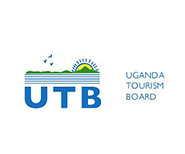Uganda, often hailed as the “Pearl of Africa,” is a land where the rhythm of nature harmonizes with the vibrant cultures of its people. This country, with its emerald landscapes, diverse wildlife, and heartwarming hospitality, is a dream destination for any traveler. But as more people discover Uganda’s treasures, the need to preserve its pristine environment and support its communities has never been more critical. This guide will empower you with the knowledge and insights to explore Uganda responsibly, ensuring that your journey leaves a positive impact.
Understanding Responsible Travel in Uganda
In Uganda, responsible tourism isn’t just a concept; it’s a way to experience the true essence of the country. It’s about more than just seeing the sights—it’s about connecting deeply with the land and its people, and ensuring that the benefits of tourism are shared with those who need it most. Here’s what responsible travel in Uganda looks like:
- Empowering Local Communities: When you choose to stay in a community-owned lodge, hire a local guide, or buy handcrafted souvenirs directly from artisans, you’re doing more than just spending money—you’re investing in the well-being of the people who make Uganda unique. Supporting local businesses helps sustain communities, ensuring that tourism growth is inclusive and beneficial to all.
- Protecting Wildlife and Natural Habitats: Uganda is home to some of the most magnificent creatures on Earth, from the iconic mountain gorillas of Bwindi to the majestic elephants of Queen Elizabeth National Park. Responsible travel means respecting these animals’ natural habitats, adhering to park guidelines, and supporting conservation initiatives that protect these species for future generations.
- Respecting and Embracing Local Cultures: Uganda’s rich cultural tapestry is woven from the traditions of over 50 different ethnic groups. To travel responsibly is to approach these cultures with curiosity and respect, participating in local customs, learning from the people, and ensuring that cultural exchanges are mutually beneficial.
Responsible Travel in Action: Inspiring Examples
To bring the concept of responsible travel to life, let’s delve into a few inspiring examples from Uganda:
- Bwindi Impenetrable National Park: Nestled in the misty mountains, Bwindi is not only a sanctuary for nearly half of the world’s remaining mountain gorillas but also a testament to the success of community-driven conservation. By visiting this park with a responsible operator, you contribute directly to the conservation of these majestic creatures and support local communities that rely on tourism for their livelihoods.
- Queen Elizabeth National Park: This expansive park is a mosaic of savannas, forests, and wetlands, teeming with wildlife like tree-climbing lions and vibrant bird species. Responsible game viewing, such as maintaining respectful distances and avoiding off-road driving, is essential in preserving the delicate balance of this ecosystem.
- Community-based Tourism Initiatives: Across Uganda, communities are embracing tourism as a pathway to sustainable development. In regions like the Rwenzori Mountains, travelers can stay in locally-run guesthouses, participate in cultural tours, and engage in activities that directly support community projects, ensuring that your visit leaves a lasting, positive impact.
Practical Tips for Sustainable Travel in Uganda
- Choose Eco-conscious Tour Operators: Seek out companies that prioritize sustainability, community involvement, and ethical practices in their operations.
- Support Local Economies: Options for accommodations, restaurants, and shops that are locally owned and operated, ensuring that your money benefits the local community.
- Respect Wildlife: Adhere to park rules, maintain a safe distance from animals, and avoid any activities that could disturb or harm wildlife.
- Minimize Your Environmental Footprint: Be mindful of your waste, conserve water and energy, and choose eco-friendly transportation whenever possible.
- Engage Meaningfully with Local Communities: Learn about local customs, participate in cultural activities, and support community-based tourism initiatives that offer authentic and enriching experiences.
By embracing responsible travel practices, you become a steward of Uganda’s extraordinary natural and cultural heritage. Every choice you make as a traveler can contribute to the conservation of this beautiful country and the well-being of its people. So, as you explore the Pearl of Africa, let your journey be guided by respect, sustainability, and a genuine desire to make a positive impact.
Contact us via [email protected] for a more customized experience to meet your Ugandan or East African safari dream.







